Get Upto £15,000 for your Heat Pump Installation with Scottish Government grants and loan
Save up to £7,500 on your heat pump installation with the Scottish Government grant! Upgrade to an energy-efficient heating system, lower your energy bills, and reduce your carbon footprint. Apply now and make your home more sustainable and eco-friendly
Are you eligible for a 100% FREE energy efficiency upgrade? Simply follow the steps below


UNDERSTANDING AIR SOURCE HEAT PUMP GRANTS
Discover how air source heat pump grants can save you up to £7,500 on installation costs. These grants support homeowners and tenants in adopting energy-efficient heating solutions, promoting renewable energy use, and reducing carbon emissions. Learn how you can benefit from this government initiative today.
Upgrade Your Home with Smart Heating
Discover the numerous benefits of heating your home with an air source heat pump. Learn why this efficient, eco-friendly system could be the perfect choice for you and how you can take advantage of government grants to reduce installation costs.
High Efficiency
Achieve remarkable energy savings with an air source heat pump, reducing energy consumption by up to 50%
Low Maintenance
Experience hassle-free heating with minimal upkeep needs, ensuring peace of mind and long-term savings
Government Funding
Receive up to £7,500 in grants to cover installation costs, making the transition to eco-friendly heating more affordable.
Unlock £7,500 in Government Funding for Your Investment
Explore how the Government’s Boiler Upgrade Scheme (BUS) funds new heat pump installations with a £7,500 voucher.
Who Can Apply for an Air Source Heat Pump Grant?
The Air Source Heat Pump Grant, backed by the UK government, targets fuel poverty and aims to reduce CO2 emissions. It’s an alternative to the Boiler Upgrade Scheme, which focuses on replacing natural gas boilers with electric heating systems. Both grants offer a way to save money on heat pump installation and explore alternative heating options.
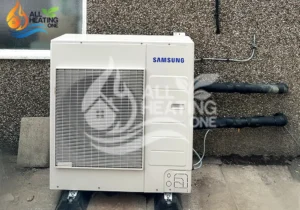
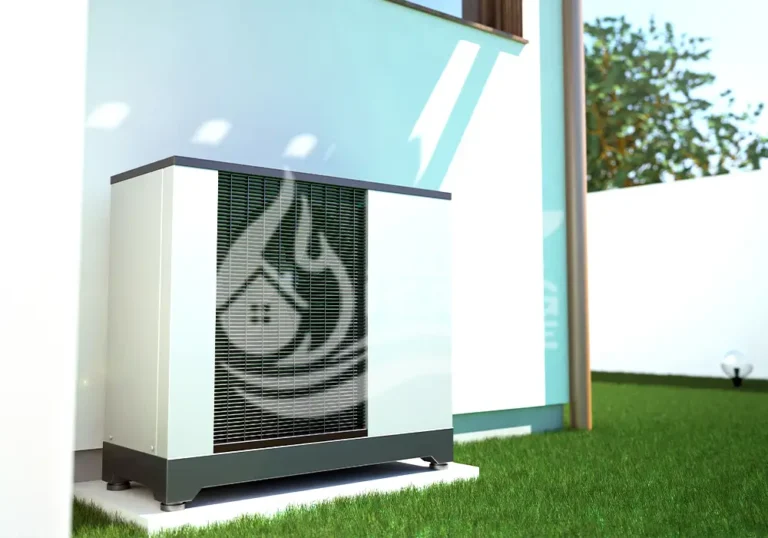
ELIGIBILITY FOR AIR SOURCE HEAT PUMP GRANTS
To qualify for Air Source Heat Pump Grants, you must meet certain eligibility criteria:
- Homeowners or private tenants (with landlord permission)
- Recipients of OFGEM-approved government UK benefits
- Homes with low Energy Performance Certificate (EPC rating meaning)
- What UK benefits criteria qualify for the grant
- Child Tax Credits (CTC)
- Working Tax Credit (WTC)
- Pension Credit Guarantee Credit
- Pension Credit Savings Credit
- Universal Credit (UC)
- Child Benefits
- Housing Benefit
- Income-based Jobseekers Allowance (JSA)
- Income-related Employment & Support Allowance
What is an Air Source Heat Pump?
An air source heat pump is a renewable energy system that extracts heat from the outside air and transfers it indoors for heating or hot water.
How does the air source heat pump work?
An air source heat pump works by absorbing heat from the outside air and transferring it indoors to heat your home or provide hot water.
How much does an air source heat pump cost?
The cost of an air source heat pump varies depending on factors like size, brand, installation requirements, and any additional features. Generally, prices range from £7,000 to £14,000.
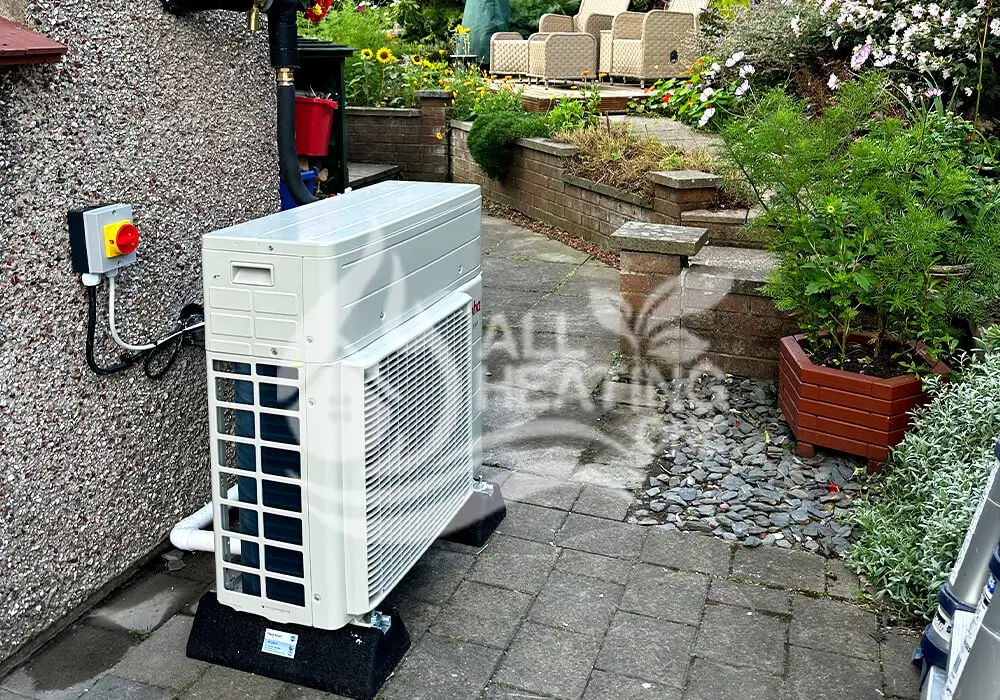
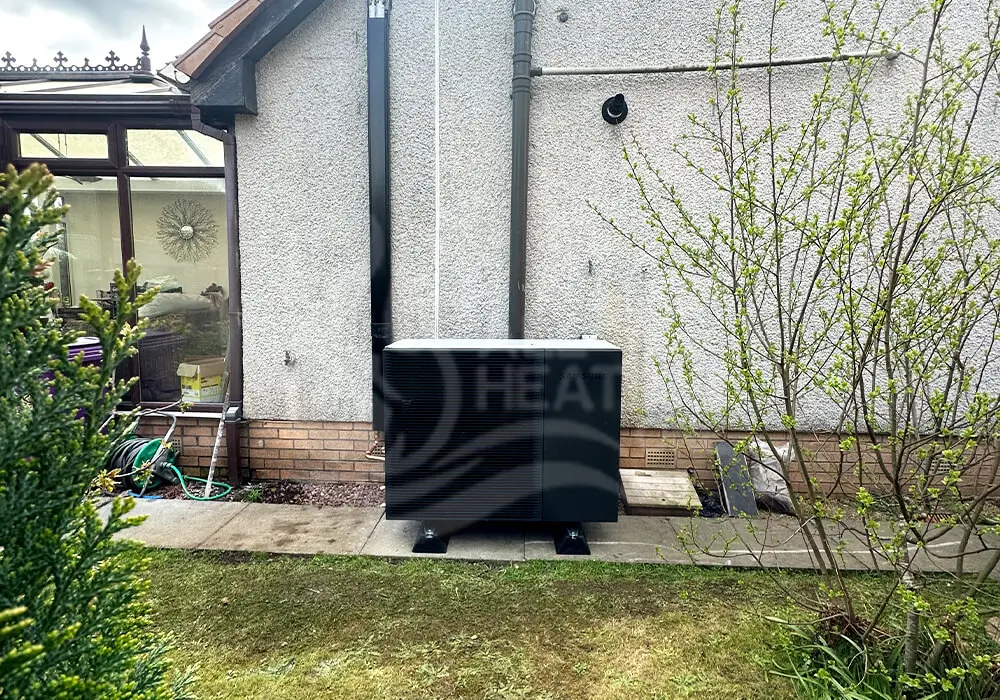
Who Qualifies for an Air Source Heat Pump Grant?
Determining eligibility for air source heat pump grants is simple, with no means-testing involved under the eco4 boiler for England and Wales or through loans and grants from Home Energy Scotland.
You may be eligible if:
- You own the property where the heat pump will be installed, whether it’s your main residence, a holiday let, or a small commercial property.
- You choose an air source heat pump installer accredited by the Microgeneration Certification Scheme (MCS).
- You’re replacing an outdated fossil fuel or electric heating system with a renewable heating system, like an air source heat pump.
- You’re not replacing a previous heat pump or renewable system.
- Your property holds a valid Energy Performance Certificate (EPC) without any pending loft or cavity wall insulation recommendations.
What are the benefits of installing air source heat pumps?
Installing air source heat pumps offers numerous benefits, including:
- Energy Efficiency : They use renewable energy from the air, reducing reliance on fossil fuels.
- Cost Savings : Lower energy bills due to reduced fuel consumption.
- Eco-Friendly : They produce fewer carbon emissions, helping combat climate change.
- Versatility : They can provide heating and cooling, making them suitable for all seasons.
- Government Incentives : Many governments offer grants or incentives to promote their installation.
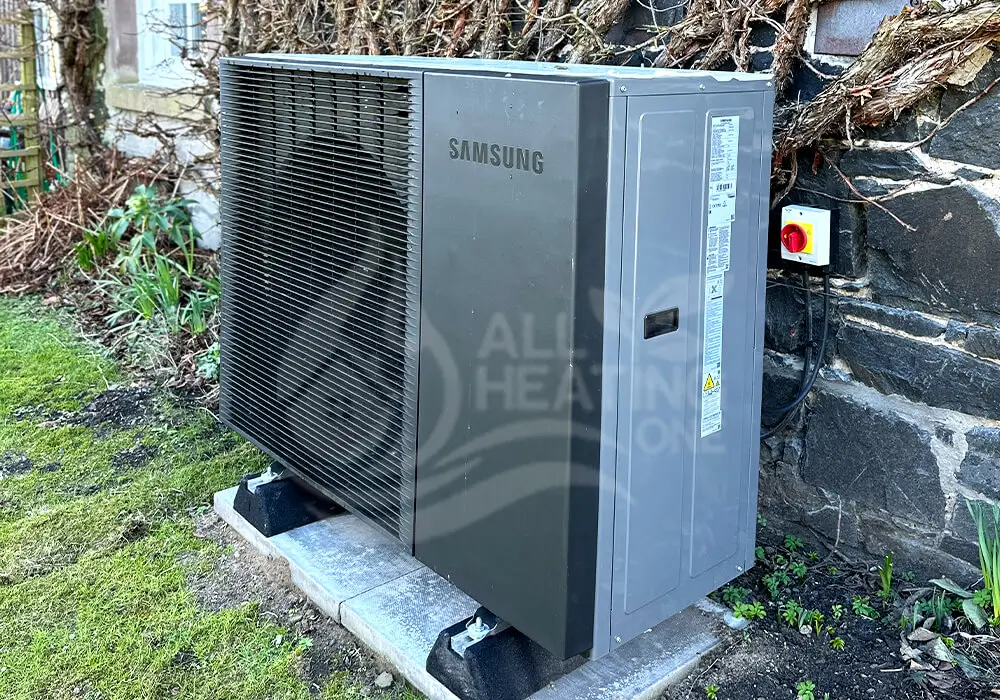
Ready to Secure Your Heat Pump Grant
[elementor-template id=”16103″]
